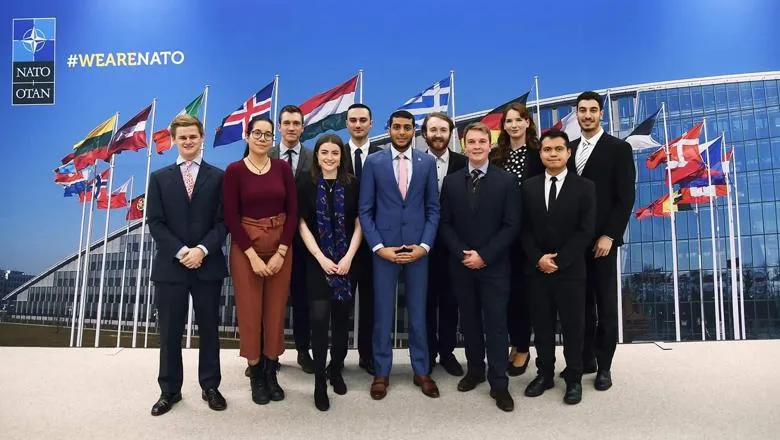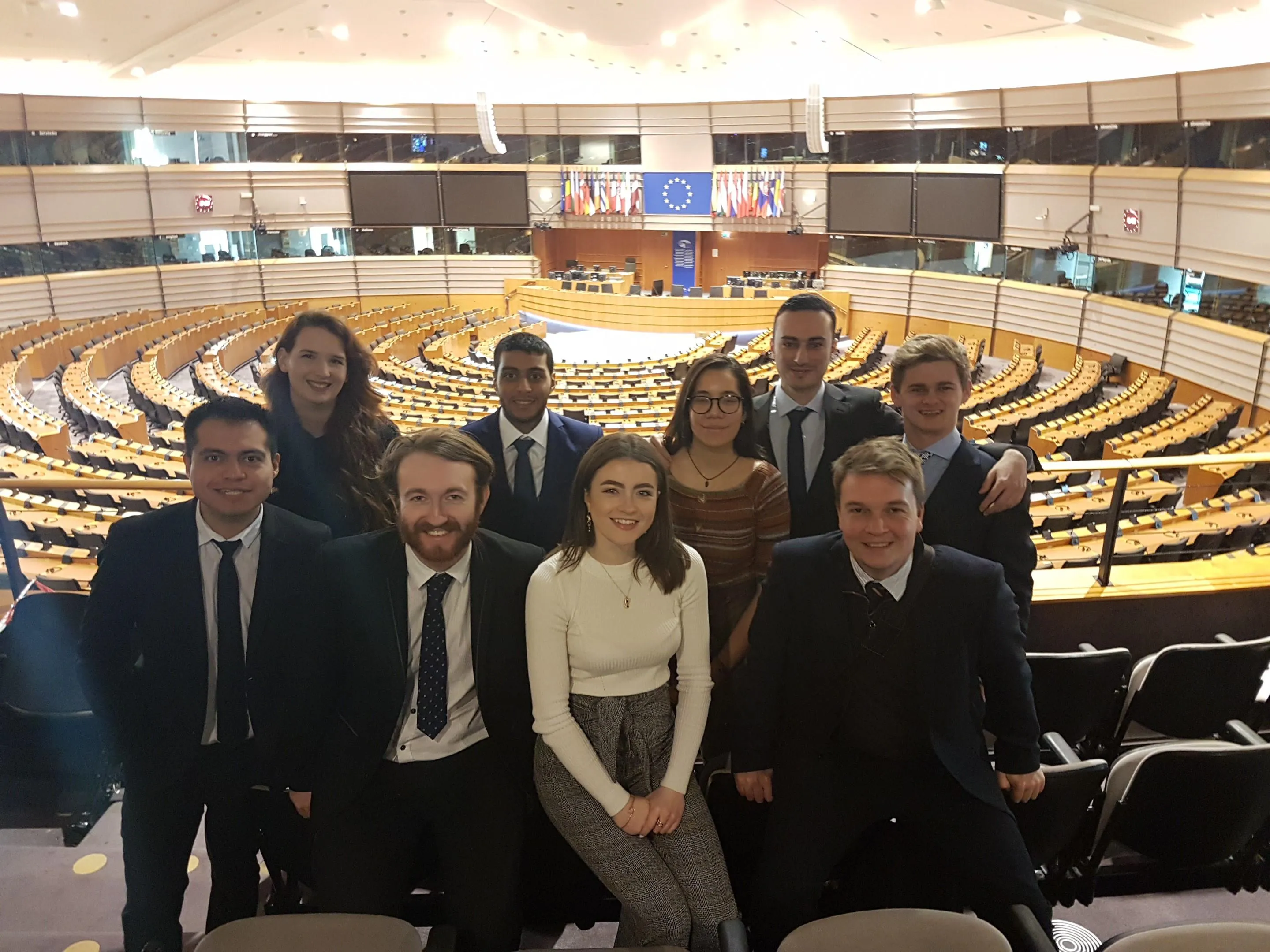This unique opportunity was extremely fruitful at the academic and professional level. I established strong ties with NATO officials and hope to work with them soon. I also hope to institute an annual visit to NATO HQ and NATO SHAPE for other War Studies students. I would like publicly to thank NATO as well as the UK Joint Delegation to NATO for hosting us.
Mochament EL Saer
13 January 2020
Notes from Brussels
A group of War Studies students traveled to Belgium to meet with officials from NATO and the European Parliament.

In December 2019, a student-led group visited the North Atlantic Treaty Organisation (NATO) Headquarters, Supreme Headquarters Allied Powers Europe (SHAPE) and the European Parliament in Brussels, Belgium.
The initiative was organised by Mochament EL Saer, a postgraduate at the Department of War Studies and Chevening Scholar of HM Foreign & Commonwealth Office.
See below for Monchament’s recollections of the trip.
On the first day of the trip, the group was hosted at the NATO HQ for a full-day visit, during which we engaged with senior NATO diplomats from Public Diplomacy, Defence Policy and Planning and Operations Divisions. In a rare honour, we were briefed by the political consular of the United Kingdom’s joint delegation to NATO.
The first briefing was led by Mr Paul King, the Programme Officer for the UK in Public Diplomacy. The group discussed the current agenda of NATO, posing tough questions about the future challenges faced by the alliance.
We were then welcomed by the political consular of the UK Joint Delegation to NATO. Our group asked about the role of the United Kingdom within the alliance and its perspective on the future trajectory of NATO in the wake of the NATO Engages forum recently held in London, which marked the seventieth anniversary of its founding.
Mr Robert Pszczel, Senior Officer within the Public Diplomacy Division was the third official we met that day. The group debated about NATO-Russia relations and the growing role China should play in the organisation’s future objectives.
The fourth briefing was led by Mrs Charlotte Hallengren, an official on Defence Capabilities within the Defence Policy and Planning Division. We discussed the relevance of conventional deterrence and defence policy in counteracting the growing dangers posed by cyberspace.
The last briefing was led by Mr Andrew Budd, Head of the Planning Section within the Operations Division. During this hour, we considered the obligations of member states and how NATO plans to tackle several of its contemporary challenges on both the technical and logistical level.
The group addressed challenging questions on various topics, from hypersonic missiles and new stealth aircrafts to the growing role of China and NATO ‘s future.
In-between sessions, we had the opportunity to interact with senior military and diplomatic leaders over lunch at the NATO cafeteria.
On the second day of the trip, we visited the Supreme Headquarters Allied Powers Europe in Mons, Belgium, the command and control military base of the Alliance. Here we had the opportunity to engage with Matthew Feix, French Navy Lieutenant within the Public Outreach Division. Throughout four hours of discussion, a wide array of topics were analysed in depth, covering everything from the history and organisational structure of SHAPE, to the practical applications of political commands to future logistical, and operational challenges that the institution must overcome.
On the third day, we travelled to the European Parliament, where we had the opportunity to meet for a briefing with Mr Henry Wasung, the last British civil servant to join the Parliament following the implementation of the Brexit process. Following an engaging period of talks we were able to view the main meeting room for committee affairs, where all official Parliamentary business occurs when not in session in Strasburg.
Kevin Nolan, one of the participants from the War Studies Department, said the trip “was a once in a lifetime opportunity I never thought possible before I came to King’s. It enriched my professional experience and allowed me to establish strong connections with influential decision makers. I strongly encourage anyone to consider trying to replicate the initial organiser’s excellent trip in subsequent years.”

